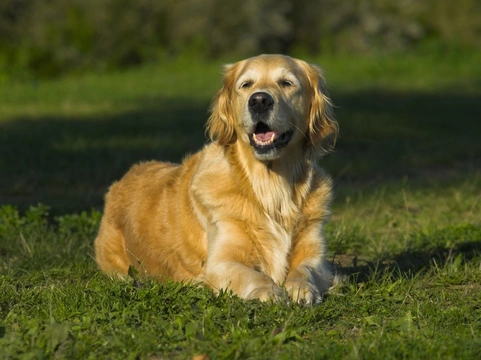
What breeds of dog have the loudest bark?
Dogs tend to be fairly vocal animals as a whole, with a wide range of different sounds at their disposal including whines, howls, yaps, and of course, barks. Owning a dog that barks all the time or that tends to leap up and make a big fuss as soon as someone walks past your house or makes a noise can become rather wearing (for you and your neighbours!) in short order, but have you ever wondered what breeds of dog have the loudest bark?
Whilst it might seem counterintuitive given how much hassle owning a very loud and noisy dog can be, some dog breeds that we recognise today were actually prized for the loudness of their bark and willingness to use it back when dogs were more commonly kept for working roles rather than as pets.
This is because dogs that were used for guarding and watchdog roles, such as to defend a home or protect a herd of livestock from predators need to have a loud, intimidating voice, in order to perform the roles that they were so valued for!
In this article, we will look at what affects the volume of a dog’s bark, which breeds tend to be the loudest, and what type of dog holds the world record for the loudest voice.
Read on to learn more.
What affects the volume of a dog’s bark?
As a general rule, whilst many smaller dogs will often be quite vocal it is generally larger dogs that have louder barks – and the larger the dog, the louder their barks are likely to be!
Breeds that are tall with long muzzles and deep chests – like the Great Dane, Newfoundland and Boerboel – tend to have very deep, rumbling barks that almost shake the room! This is because they have both the lung capacity to create a deep sound and the length of the muzzle to get enough air into those lungs to put a lot of power behind it.
Dogs with brachycephalic muzzles – which are shorter than the norm – tend to not be able to produce such as deep sound, as they don’t have the lung capacity or ability to take a large, deep breath or to maintain a lot of volume for a long period of time.
However, many medium-sized dogs will also have a surprisingly deep, rumbling bark that really catches your attention and makes you think that it must come from a much larger hound – which includes many Springer spaniels and working breeds of around the same size.
Ultimately, it is the size and conformation of a dog that dictates how loud their bark will be – rather than their temperament, or how likely they are to be vocal.
Breeds that were historically valued for guarding and watchdog roles were dogs who both had a very loud voice and a willingness to use it, and it is important to remember that a very loud or daunting bark simply means that the dog in question has a loud voice, not that they are likely to be dominant or aggressive.
What dogs tend to have the loudest voices?
When it comes to dog breeds that almost invariably have a very loud, deep bark, virtually all watchdog and guarding breeds fit the bill, like the German shepherd, Rottweiler, Doberman pinscher and Japanese Akita.
This is because being an effective guard dog or watch dogs means having the tenacity and vigilance to watch out for potential threats to their home or flock, and willingness to be very vocal about it to let their owners or handlers know.
After all, a watchdog that has no way to alert their owners of a potential threat – or to serve as a deterrent to someone that is up to no good isn’t likely to be very good at their jobs!
What dog has the loudest bark?
When it comes to world record holders, the dog that is recognised by the Guinness Book of World Records as having the loudest bark is actually a golden retriever. This breed ticks all of the boxes that loud dogs usually do – large size, deep chest, and long muzzle.
The record-holding golden retriever, Charlie, was recorded with a bark that reached 113.1dB, which was enough for him to take pole position in the loudest bark stakes in 2013 from a German shepherd called Daz, who had held the record up until that point with a still impressive 108dB performance.
However, just because a dog potentially has a very large bark doesn’t mean that they will necessarily use it a lot – many very loud-voiced dogs tend to keep their best barking for special occasions, and will often be a lot quieter to own as a whole than many more talkative breeds – but when they do vocalise their feelings, everyone around them will be apt to sit up and take notice!



